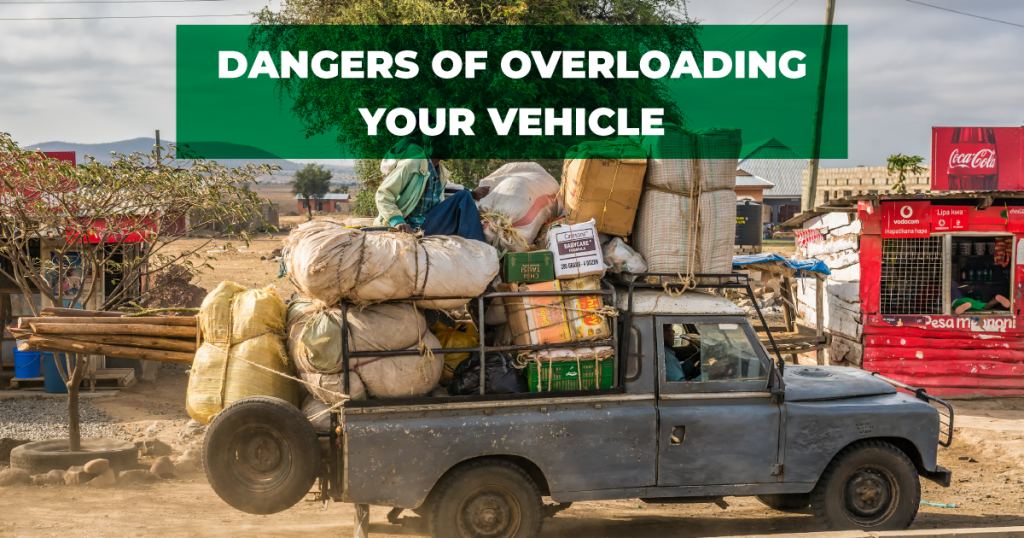Overloading causes the vehicle to lose stability as the centre of gravity is raised. This makes steering and braking of the vehicle difficult.
The Kenya National Highways Authority (KENHA) has highlighted the dangers and the risks of overloading of vehicles and has it as part of its road safety mission.
Here are some of the many risks involved when a vehicle is overloaded.
Road Surface Damage

Driving an overloaded vehicle (private or commercial) can seriously damage road surfaces. The possibility of damage increases as the load increases.
The damage begins to affect the safety of road users who may have to contend with cracks and potholes on the road surface. Prevention is better than cure and that’s why lorries have to be tested at various weighbridges along the highways.
Vehicle Stability

No vehicle behaves in the same way when overloaded, but generally, steering becomes more difficult. Overloading a vehicle usually occurs towards the back of a car, pickup or truck.
This causes the front wheels to touch the road surface under less weight. This results in the loss of traction and steering control. In extreme cases, the front wheels may, at times, even lift off the road surface.
Effect On The Tyers

Overloading strains the tyre’s structure which leads to increased friction. As a result, this produces a lot of heat. Overheated tyres can wear out rapidly and may result in blow-outs. In most cases, blow-outs are fatal as the driver loses control of the vehicle leading to an accident.
Loss Of Acceleration

An overloaded car is not able to accelerate quickly. Sometimes, it may happen that a motorist suddenly needs to accelerate and overtake a car to avoid danger. If this is not possible, the driver may endanger passengers and other road users.
Increased Braking Distance

First, brakes have to work extra hard seeing that the car is so heavy. Stressed brakes will generate much heat, making them less effective.
Secondly, the stopping distance of an overloaded vehicle will be longer than usual. This may lead to rear-end crashes as the car simply runs out of distance before it can stop.
Poor Vision Due To Blind Spots
An overloaded car will have its headlights pointing upwards. As a result, a driver may see less directly in front of the car. This also puts other oncoming motorists at risk as they are blinded by the headlights. Therefore, the chances of a head-on collision also increase.
Damage Of Suspensions

Overloading can cause unnecessary stress on the suspension of a vehicle. Ineffective shock absorbers can lead to uneven tyre wear as well as cause instability during driving.
Insurance Implication
An insurer may reject an insurance claim on the grounds that overloading is illegal. Overloading messes with some of the specifications that make a car roadworthy.
Conclusion
To avoid overloading a car, find out from the manual how much weight your car is permitted to carry. This way you will safeguard yourself, your passengers and other drivers on the road.
